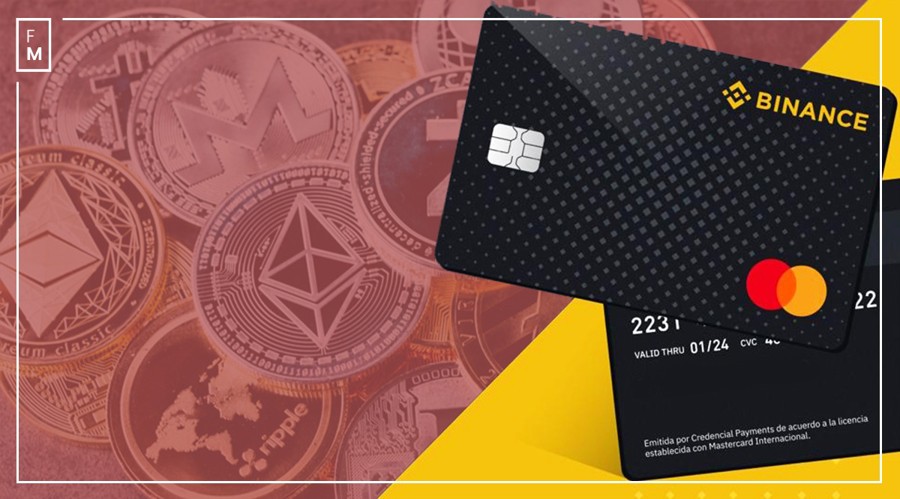
In a significant move affecting the world of
cryptocurrency and traditional finance, MasterCard and Binance have decided to
end their partnership on crypto card programs in several countries. This
decision reflects the challenges Binance is facing as traditional financial
institutions distance themselves from the crypto landscape.
According to a report by
Reuters citing the exchange’s spokesperson, Binance and MasterCard will end
their four crypto card programs in Argentina, Brazil, Colombia, and Bahrain on September 22. These programs enable users to conduct transactions in
traditional currencies while utilizing their crypto holdings stored on Binance.
This discontinuation in partnerships is not an isolated
event, as it follows Visa’s earlier move to cease issuing co-branded cards with
Binance in Europe. Binance has also experienced setbacks related to banking
services, including being cut off from the US banking system and losing the
ability to accept specific bank transfers in Australia.
Yesterday (Thursday), Finance
Magnates reported that
Binance has announced a discontinuation
of its crypto-backed debit card services in Latin America and the Middle East. In its
communication, Binance clarified that Binance Card, which facilitates
transactions with crypto assets, will no longer be accessible to users in the
affected region from September 21, 2023.
In light of Binance Card exiting from Latin America and the Middle East, the exchange offered the
affected users the alternative of using Binance Pay. Binance Pay, a platform
enabling crypto transactions through mobile devices, continues to function as a
bridge for sending and receiving cryptocurrencies , the company said.
Binance’s Multi-Front
Challenge
Additionally, Binance ended Binance Connect, a service
facilitating crypto transactions through Visa and MasterCard, most recently.
The winding
down of Binance Connect came
on the heels of Binance’s encounter with regulatory challenges and shifts in partnerships.
Besides that, the exchange ended its collaboration with Paysafe Solutions, a
euro banking partner, earlier in the year.
Recently, Binance found
itself embroiled in fresh controversy as allegations surfaced of its involvement in using
sanctioned banks for peer-to-peer crypto transfers in Russia. According to a report by the Wall
Street Journal, Binance allegedly facilitated P2P transactions among Russian
users using at least five banks facing sanctions.
As
the exchange grapples with challenges in the regulatory and legal realms, its
native token, Binance Coin (BNB), has found itself at the center of growing
concerns. The persistent decline of BNB’s value has fueled speculation that it
could face liquidation. However, the exchange’s CEO, Changpeng Zhao, has
dispelled any allegations.
In a significant move affecting the world of
cryptocurrency and traditional finance, MasterCard and Binance have decided to
end their partnership on crypto card programs in several countries. This
decision reflects the challenges Binance is facing as traditional financial
institutions distance themselves from the crypto landscape.
According to a report by
Reuters citing the exchange’s spokesperson, Binance and MasterCard will end
their four crypto card programs in Argentina, Brazil, Colombia, and Bahrain on September 22. These programs enable users to conduct transactions in
traditional currencies while utilizing their crypto holdings stored on Binance.
This discontinuation in partnerships is not an isolated
event, as it follows Visa’s earlier move to cease issuing co-branded cards with
Binance in Europe. Binance has also experienced setbacks related to banking
services, including being cut off from the US banking system and losing the
ability to accept specific bank transfers in Australia.
Yesterday (Thursday), Finance
Magnates reported that
Binance has announced a discontinuation
of its crypto-backed debit card services in Latin America and the Middle East. In its
communication, Binance clarified that Binance Card, which facilitates
transactions with crypto assets, will no longer be accessible to users in the
affected region from September 21, 2023.
In light of Binance Card exiting from Latin America and the Middle East, the exchange offered the
affected users the alternative of using Binance Pay. Binance Pay, a platform
enabling crypto transactions through mobile devices, continues to function as a
bridge for sending and receiving cryptocurrencies , the company said.
Binance’s Multi-Front
Challenge
Additionally, Binance ended Binance Connect, a service
facilitating crypto transactions through Visa and MasterCard, most recently.
The winding
down of Binance Connect came
on the heels of Binance’s encounter with regulatory challenges and shifts in partnerships.
Besides that, the exchange ended its collaboration with Paysafe Solutions, a
euro banking partner, earlier in the year.
Recently, Binance found
itself embroiled in fresh controversy as allegations surfaced of its involvement in using
sanctioned banks for peer-to-peer crypto transfers in Russia. According to a report by the Wall
Street Journal, Binance allegedly facilitated P2P transactions among Russian
users using at least five banks facing sanctions.
As
the exchange grapples with challenges in the regulatory and legal realms, its
native token, Binance Coin (BNB), has found itself at the center of growing
concerns. The persistent decline of BNB’s value has fueled speculation that it
could face liquidation. However, the exchange’s CEO, Changpeng Zhao, has
dispelled any allegations.
- SEO Powered Content & PR Distribution. Get Amplified Today.
- PlatoData.Network Vertical Generative Ai. Empower Yourself. Access Here.
- PlatoAiStream. Web3 Intelligence. Knowledge Amplified. Access Here.
- PlatoESG. Automotive / EVs, Carbon, CleanTech, Energy, Environment, Solar, Waste Management. Access Here.
- PlatoHealth. Biotech and Clinical Trials Intelligence. Access Here.
- ChartPrime. Elevate your Trading Game with ChartPrime. Access Here.
- BlockOffsets. Modernizing Environmental Offset Ownership. Access Here.
- Source: https://www.financemagnates.com//cryptocurrency/binance-and-mastercard-part-ways-end-crypto-card-partnership-in-multiple-countries/
- :has
- :is
- :not
- 2023
- 22
- a
- ability
- Accept
- accessible
- According
- across
- affecting
- age
- Allegations
- allegedly
- also
- alternative
- america
- among
- an
- and
- announced
- any
- Argentina
- AS
- Assets
- At
- Australia
- bahrain
- Bank
- Banking
- banking system
- Banks
- BE
- being
- besides
- binance
- Binance Card
- Binance Coin
- Binance Coin (BNB)
- binance pay
- bnb
- Brazil
- BRIDGE
- by
- came
- card
- Cards
- Center
- ceo
- challenges
- Changpeng
- Changpeng Zhao
- clarified
- Coin
- Coins
- collaboration
- Colombia
- Communication
- company
- Concerns
- Conduct
- Connect
- continues
- controversy
- could
- countries
- crypto
- Crypto Card
- crypto landscape
- crypto transactions
- crypto-assets
- cryptocurrency
- currencies
- Cut
- Debit
- Debit Card
- decided
- decision
- Decline
- Devices
- discover
- distance
- down
- Earlier
- East
- enable
- enabling
- encounter
- end
- Euro
- Europe
- Event
- exchange
- Exiting
- experienced
- Face
- facilitated
- facilitates
- facilitating
- facing
- finance
- financial
- five
- follows
- For
- found
- four
- fresh
- from
- fueled
- function
- future
- Growing
- Have
- Holdings
- However
- HTTPS
- in
- Including
- instantly
- institutions
- into
- involvement
- isolated
- issuing
- IT
- ITS
- itself
- jpg
- landscape
- Latin
- latin america
- least
- Legal
- light
- Liquidation
- longer
- losing
- mastercard
- Middle
- Middle East
- Mobile
- mobile devices
- most
- move
- native
- Native Token
- New
- no
- of
- off
- offered
- on
- p2p
- partner
- Partnership
- partnerships
- Pay
- peer to peer
- platform
- plato
- Plato Data Intelligence
- PlatoData
- private
- Programs
- realms
- receiving
- recently
- reflects
- region
- regulatory
- related
- report
- Reported
- Russia
- russian
- s
- Said
- Sanctioned
- Sanctions
- secure
- sending
- September
- service
- Services
- Setbacks
- several
- Shifts
- significant
- Solutions
- specific
- speculation
- spokesperson
- stored
- street
- swap
- system
- that
- The
- The Future
- the world
- their
- themselves
- These
- this
- Through
- thursday
- to
- token
- traditional
- traditional finance
- Transactions
- transfers
- us
- users
- using
- Utilizing
- value
- visa
- which
- while
- will
- with
- world
- year
- zephyrnet
- Zhao








